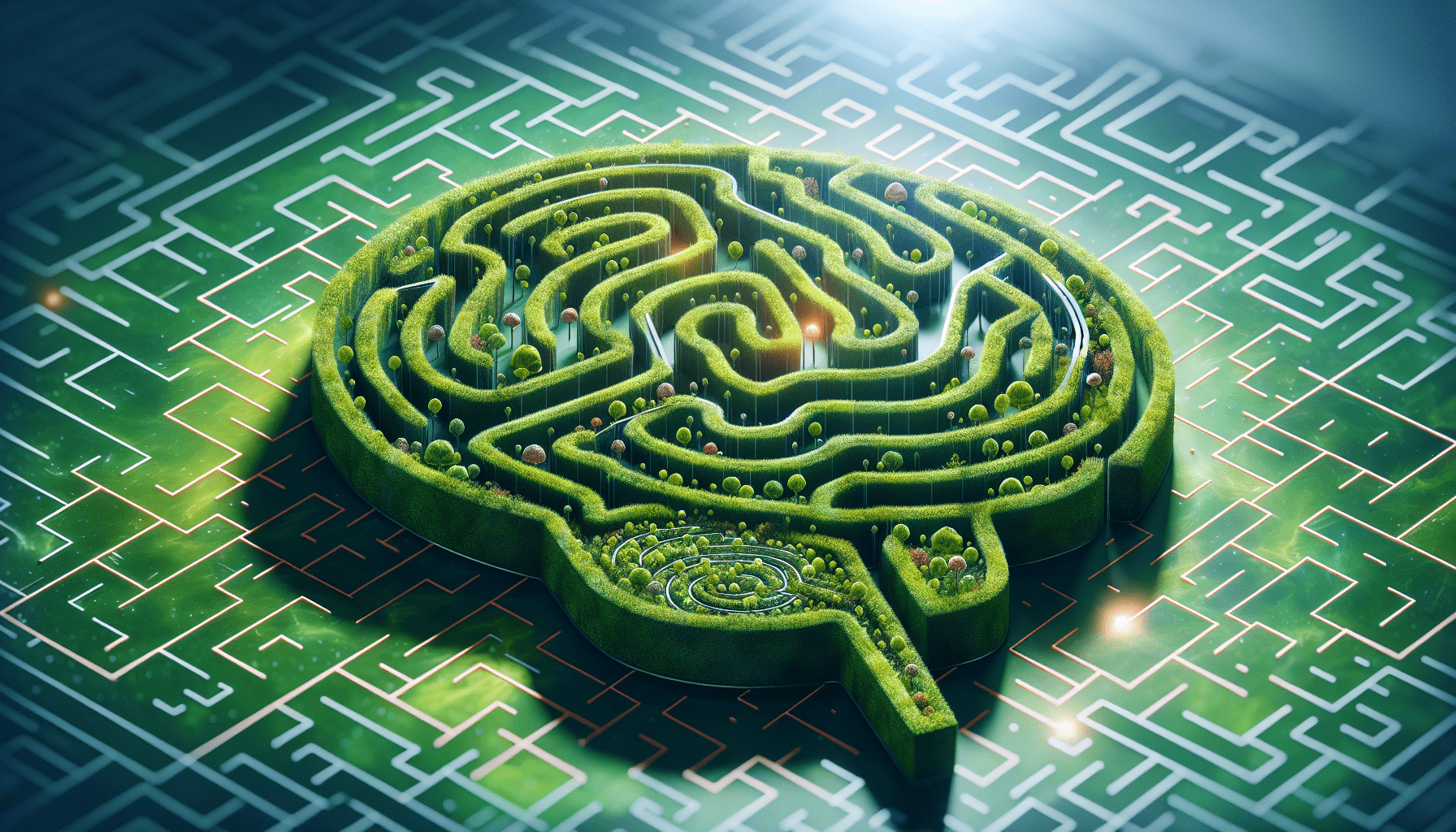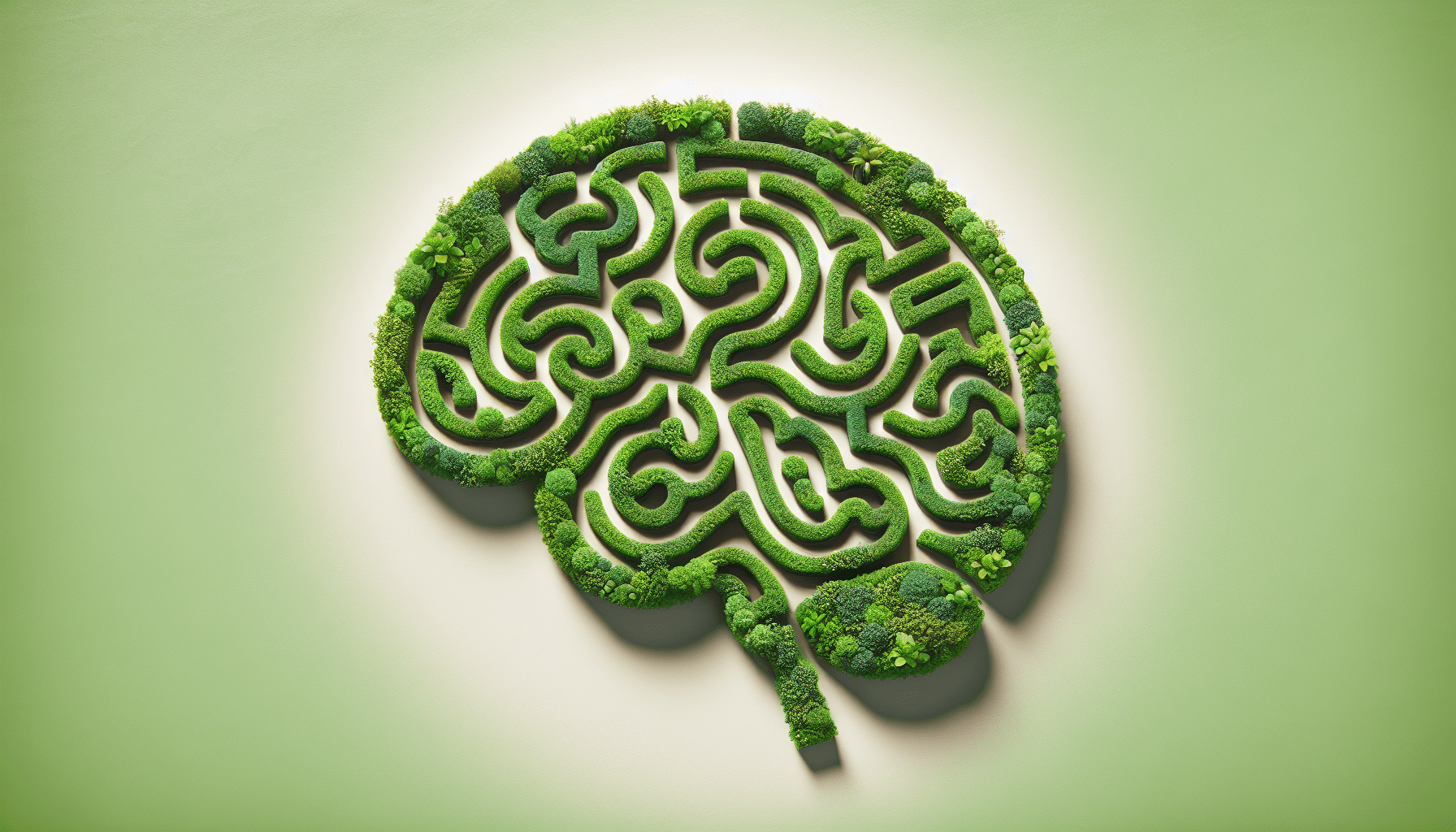Have you ever wondered if age-related memory problems are reversible? As humans, we all have the innate curiosity to understand how our minds work, especially when it comes to memory. As we age, the way our brain stores and retrieves information can change, which can be concerning for many. The question of whether these changes are permanent or if they can be reversed is both fascinating and important.

What Happens to Memory as We Age?
Aging is a natural part of life, and with it comes changes in cognitive function, including memory. As you grow older, you might notice that remembering names, dates, or certain tasks isn't quite as effortless as it once was. This phenomenon is common and has led many to explore the nature of memory changes with age. Understanding how memory works is crucial for grasping why and how these changes occur.
The Science of Memory
Memory is a complex system that involves different parts of the brain, notably the hippocampus, prefrontal cortex, and amygdala, among others. These areas are responsible for forming, storing, and recalling information. As you age, there are changes in these brain regions and other aspects of brain function that can affect memory. This understanding is key to deciphering whether age-related declines are inevitable or reversible.
Types of Memory Affected
It's essential to differentiate between various types of memory. Mainly, age-related changes often affect short-term memory, procedural memory, and to some extent, long-term memory. Here's a brief breakdown of these memory types:
- Short-Term Memory: This involves the ability to hold small amounts of information temporarily.
- Procedural Memory: This is responsible for remembering how to perform different actions and skills.
- Long-Term Memory: This consists of storing and recalling information over longer periods, which can include episodic and semantic memory.
Understanding these distinctions helps in identifying which areas might be more susceptible to age-related changes.
Are Age-Related Memory Problems Reversible?
The central question remains: Can you reverse age-related memory problems? Studies provide both hope and insight into how this might be achievable, shedding light on factors that can influence memory restoration or improvement as you age.
Research and Studies
Several scientific studies suggest that memory function can indeed be improved or maintained. Research indicates that memory problems often stem from factors that can be addressed, such as lifestyle choices, health conditions, and mental activity. Notably, while not all age-related memory changes are reversible, many can be mitigated or slowed.
Neuroplasticity and Memory
One of the most promising areas of research is the concept of neuroplasticity—the brain's ability to reorganize itself by forming new neural connections throughout life. This adaptability means that even in older age, your brain can forge new pathways, which could compensate for memory issues.
Factors Affecting Memory Reversibility
Understanding the factors that can influence the reversibility of memory problems is crucial. Lifestyle, health, and mental engagement play significant roles in how your memory changes as you age.
Lifestyle Choices
Your daily habits can have a profound impact on your memory. Exercise, diet, and sleep not only affect your physical health but also your cognitive function. Regular physical activity is linked to improved memory and cognitive function because it increases blood flow to the brain. Similarly, a diet rich in antioxidants, omega-3 fatty acids, and vitamins can bolster brain health.
Health Conditions
Underlying health issues, such as cardiovascular disease, diabetes, or depression, can impact memory. Managing these health conditions effectively can sometimes reverse or lessen memory problems. For example, controlling blood pressure can improve cognitive health and reduce the risk of memory decline.
Mental Engagement and Learning
Keeping your brain active is one of the key factors in maintaining memory function. Engaging in challenging mental activities, learning new skills, or even playing strategy games can stimulate your brain. This engagement is associated with delaying age-related memory problems and keeping your cognitive function sharp.
Practical Strategies for Memory Improvement
With an understanding of the factors at play, you can adopt several strategies to aid memory improvement as you age. These approaches range from lifestyle modifications to cognitive exercises and professional interventions.
Physical Exercise
Incorporating regular physical exercise into your routine is one of the most effective ways to enhance memory. Aerobic exercises like walking, swimming, or cycling have been shown to improve cognitive function by promoting brain plasticity and increasing the production of neuroprotective factors.
Nutrition and Diet
Focus on a diet that supports brain health, emphasizing whole foods such as fruits, vegetables, nuts, and fish. The Mediterranean diet, known for its heart health benefits, also supports cognitive health and is linked to a slower rate of cognitive decline.
Cognitive Training
Brainteasers, puzzles, and memory games are excellent tools to keep your mind active. Activities that require strategic thinking such as chess or sudoku can enhance your cognitive agility. Additionally, learning new skills, such as a language or a musical instrument, can further stimulate your brain.
Professional Interventions
In some cases, professional help may be beneficial. Cognitive therapies, memory workshops, or even medication prescribed by healthcare professionals can play a role in addressing severe memory issues. It's essential to consult with medical experts to determine the best course of action for individual circumstances.

The Role of Social Interaction
An often overlooked aspect of maintaining cognitive health is social interaction. Staying socially active can significantly reduce the risk of memory decline.
Importance of Relationships
Interacting regularly with friends and family can provide cognitive stimulation. Conversations and social activities engage multiple areas of the brain, helping to strengthen memory function.
Community Engagement
Being part of a community or engaging in volunteer work can also offer mental stimulation. Such interactions can instill a sense of purpose and fulfillment, contributing positively to overall well-being and memory health.
Understanding Changes in Memory Expectations
While it's crucial to explore strategies for memory improvement, it's equally important to have reasonable expectations regarding memory changes with age.
Acceptance of Normal Changes
Aging will bring about some natural changes in memory that are not necessarily indicative of serious cognitive decline. Embracing these changes rather than fearing them can lead to a healthier perspective on aging and memory.
Differentiating Between Normal and Abnormal Memory Issues
Understanding which memory changes are standard and which require attention is crucial. Normal aging may involve slower recall or needing more cues to retrieve information, but it shouldn't severely disrupt daily life. It's important to seek medical guidance if memory problems affect everyday activities significantly.
Conclusion
Exploring the reversibility of age-related memory problems reveals a hopeful narrative amidst the science of aging. By focusing on lifestyle adjustments, mental engagement, and social connectivity, many aspects of memory can be preserved or even enhanced with age. Remember, while not all changes can be reversed, many can be mitigated with proactive measures. Engaging in these strategies not only supports memory health but enriches your overall quality of life, allowing you to enjoy the golden years with a sharper mind and a resilient spirit.
